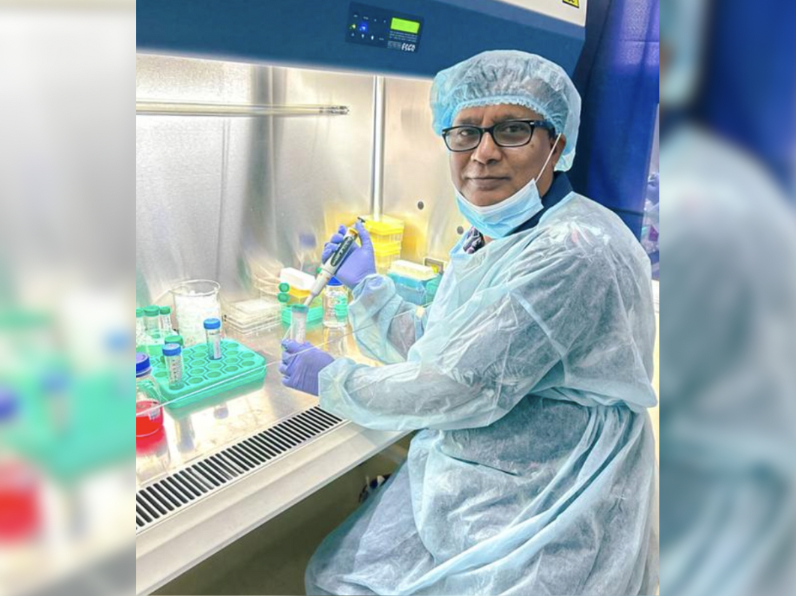(NMC) — Research is being conducted at Northern Marianas College's Cooperative Research, Extension, and Education Services or NMC-CREES to investigate the revenue-generating potential of the noni plant, a vital herbal plant widely grown and used as medicine, food, and drink in the islands.
Led by NMC-CREES Professor and State Program and Food Science Leader Dr. Zaidul I. Sarker, the study has revealed promising findings on the bioactive compounds present in noni and their potential use in the food, nutraceutical, and pharmaceutical industries.
The goal of this project is to use a green and environmentally friendly extraction method, leveraging supercritical carbon dioxide, to process noni and other medicinal plants from the Pacific region. Developed and patented by Sarker, this extraction method is expected to generate revenue and boost the local economy. For the first time, noni samples of fruit flesh, seeds, and leaves grown in the Northern Mariana Islands will be studied using this particular extraction method, marking a significant step forward in noni processing research.
Scientifically known as Morinda citrifolia, the noni plant has traditionally been used as medicine, food, and drink, and has been claimed to have various health benefits, including as a natural treatment for high blood pressure and diabetes, anthelmintic and antifungal, antibacterial, anti-inflammatory, anxiolytic and antioxidant, wound healing, anticancer effects, cardiovascular and immune stimulation functions.
Using Sarker’s patented technique of supercritical fluid extraction, a green method which involves applying high-pressure with carbon dioxide as a solvent, Sarker extracted, purified, and fractionated the bioactive compounds simultaneously from the noni plant. One aspect of the study involved comparing the bioactivity of the extracts with commercial noni products available in the local market, which are either homemade or traditionally processed.
The bioactive compounds in noni leaves, fruits, and seeds extracted and fractionated using the green extraction method were found to retain high bioactive quality in terms of bioactivity including high anti-diabetic effect in In-vitro analyses. Bioactive compounds are known to possibly promote good health in the human body.
Sarker also studied the cytotoxicity effect of noni products on human breast cancer lines and found that they have inhibitory activities on anticancer mechanisms. However, further studies are needed at the molecular level for genome expression as well as a Real-time PCR study.
NMC-CREES Interim Dean Patricia Coleman said that the preliminary findings are promising and that CREES intends on opening a medicinal plant lab on Rota and a larger multi-purpose lab on Saipan by the end of 2023 to spur further research and economic activity.
"This research has the potential to unlock new commercial opportunities for farmers, business owners, and stakeholders in the Pacific region and beyond, and contribute to the development of our local economy. We are excited to continue supporting Dr. Sarker's work and exploring the potential benefits of natural medicinal plants for our community, region, and world,” Coleman said.
NMC President Galvin Deleon Guerrero, EdD, is also supportive of Sarker’s and NMC-CREES’ efforts.
“We are committed to supporting research efforts like Dr. Sarker’s study on the noni plant, which has the potential to bring economic benefits to our community,” Deleon Guerrero said.
While Sarker's findings are still preliminary, the results could contribute to creating new industries and generating revenue for the development of the economy in the Pacific region as well as in the U.S. Further studies are needed to analyze the bioactivity of the products and their toxicity by in-vivo methods.


